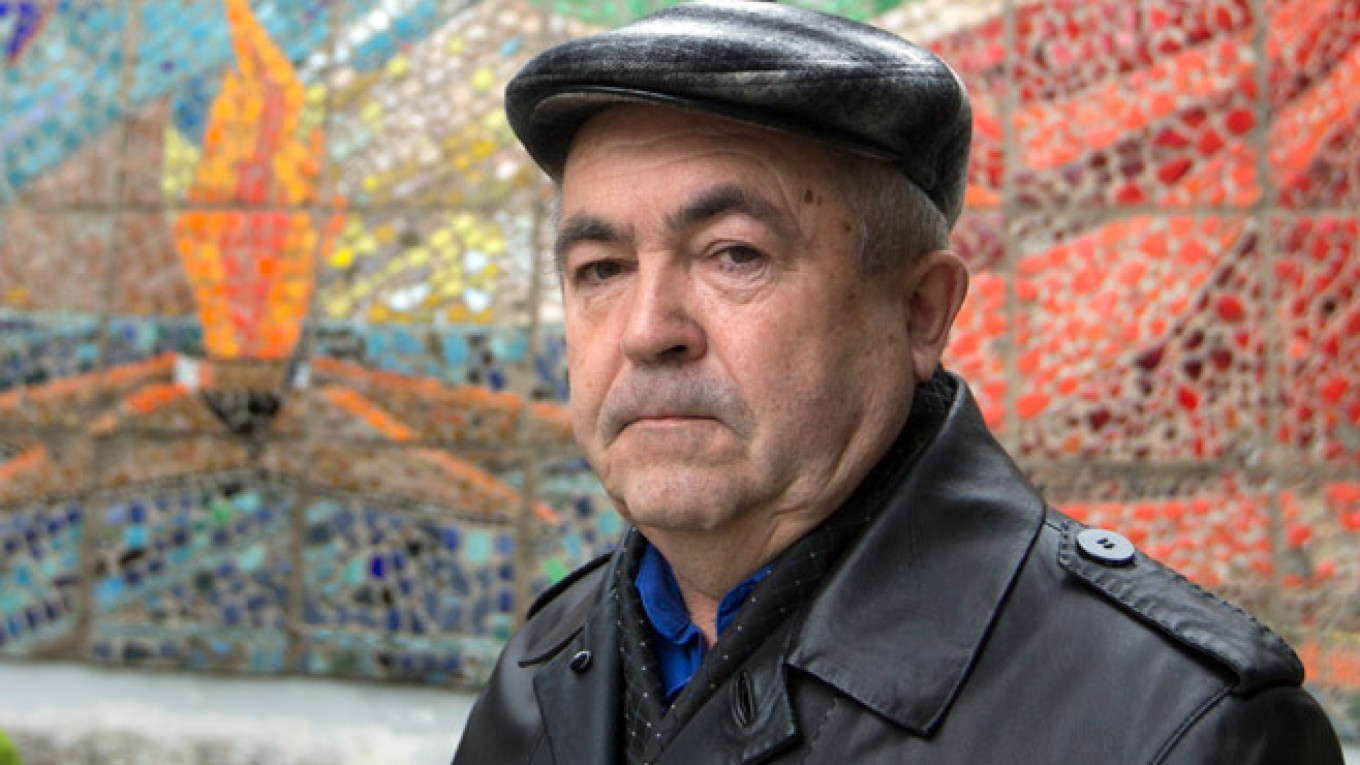KUBINKA, Moscow Region — A vast workshop that upgrades warplanes of the kind Russia is using in Syria is this town's lifeblood, and support for the Syria campaign is strong.
"We've extended a helping hand and that's how it should be," said 70-year-old Tamara Vlasenko, a resident of the town 65 kilometers outside Moscow. "Those who started the conflict will pay handsomely, as they should."
Like Vlasenko, more than 70 percent of Russians support President Vladimir Putin's decision to begin air strikes, which Russia says are directed against the Islamic State extremist group, according to a poll from the independent Levada Center.
Although many Russians are still unsettled by the grisly and humiliating Soviet involvement in Afghanistan in the 1980s, the new foreign military campaign doesn't faze Kubinka's people.
"I don't think Syria will turn into another Afghanistan for Russia," said Tatyana Okhapkina, 43, bouncing her 7-month-old granddaughter on her lap. "I'm not too worried it will affect my grandchildren, or even my children. I really believe in our president. He knows what he is doing."
Only about 14 percent of Russians are against the air strikes in Syria, according to the Levada Center poll, which was conducted Oct. 2-5 nationwide and has a margin of error of 3.4 percentage points.
An opposition-organized protest against the Syria campaign on Saturday in Moscow attracted about 250 people. Among them was Alexandra Bukvaryova, 29, who said she feared Syria would become a second Afghanistan.
"I am disappointed that so few people are here," said Bukvaryova, who works for a nongovernmental organization. "Because our people don't understand that this will affect them. As it was said here [at the rally], their children will die in Syria. And it is not clear for what."
Russia's aerial campaign in Syria has necessitated military-to-military dialogue between Russian and the Western coalition that is running a separate campaign against IS, while simultaneously driving a wedge between the two sides. The coalition, which includes the United States and France, has accused Russia, a longtime ally of Syrian President Bashar Assad, of conducting "indiscriminate military operations against the Syrian opposition" under the pretext of eliminating terrorist threats in Syria.
Putin reaffirmed that the Russian bombing blitz against the Islamic State group and other radicals in Syria, which began Sept. 30, will continue "for the period of the Syrian troops' offensive operations against terrorists."
Around lunchtime on weekdays, the main street in Kubinka becomes animated as a stream of employees pours out of the airplane parts factory. Vasily Perets, who has worked in the factory for 30 years, said Russia's vigilance in the Middle East was necessary.
He dismissed concerns that Russia's air strikes would prompt retaliatory terrorist acts at home, saying extremist sentiment has long been brewing.
"Haven't you seen the news about Central Asia?" he said, referring to recruits from former Soviet republics fighting for IS. "The threat is already on its way."
To buoy public support for military intervention in Syria after long decrying Western intervention, the Russian government, in tandem with the media, began presenting the distant threat of Islamic State as something more tangible for Russians: radicalized fighters returning home to Central Asia and the North Caucasus region in southern Russia.
Last week in Kazakhstan, Putin said that between 5,000 and 7,000 citizens of Russia and other former Soviet republics were fighting alongside Islamic militants.
Perets, the Kubinka factory worker, said he felt safe, but Russia "needs to destroy evil before it comes here to us."
A Message from The Moscow Times:
Dear readers,
We are facing unprecedented challenges. Russia's Prosecutor General's Office has designated The Moscow Times as an "undesirable" organization, criminalizing our work and putting our staff at risk of prosecution. This follows our earlier unjust labeling as a "foreign agent."
These actions are direct attempts to silence independent journalism in Russia. The authorities claim our work "discredits the decisions of the Russian leadership." We see things differently: we strive to provide accurate, unbiased reporting on Russia.
We, the journalists of The Moscow Times, refuse to be silenced. But to continue our work, we need your help.
Your support, no matter how small, makes a world of difference. If you can, please support us monthly starting from just $2. It's quick to set up, and every contribution makes a significant impact.
By supporting The Moscow Times, you're defending open, independent journalism in the face of repression. Thank you for standing with us.
Remind me later.


